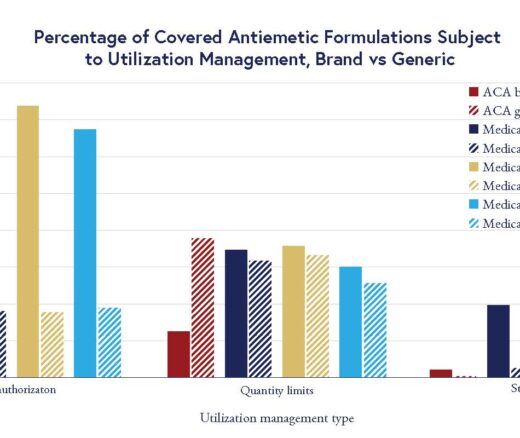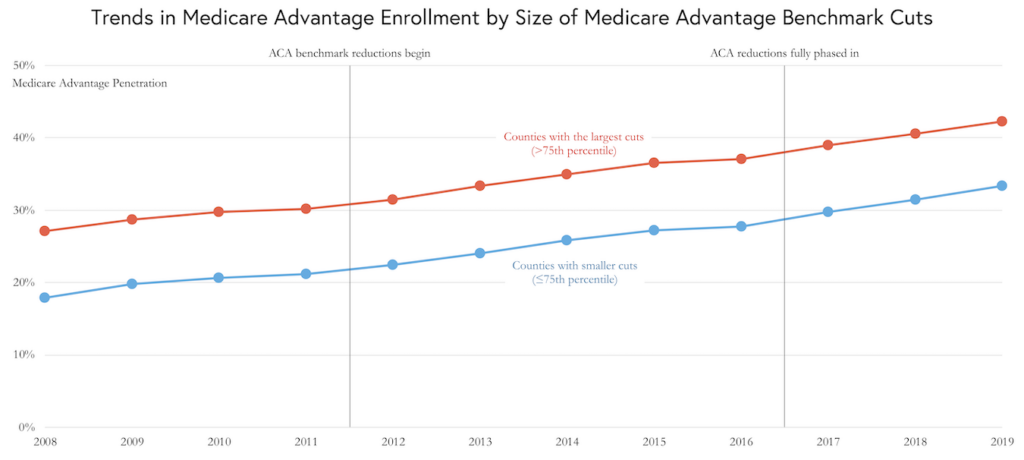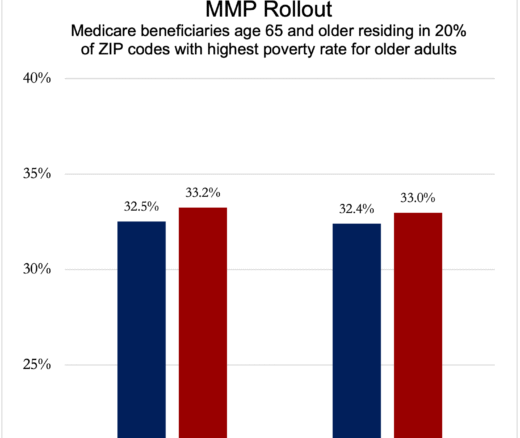
Insurers’ Utilization Management Tools Vary Widely on Anti-Nausea Drugs for Cancer
Chart of the Day: LDI Researchers Report Major Coverage Differences Across ACA and Medicaid Plans, Affecting Access to Drugs That Treat Chemo-Related Nausea
Blog Post

Medicare Advantage (MA)–the private alternative to traditional Medicare–is now projected to enroll more than half of all Medicare recipients this year for the first time. The surge in MA plans has fueled concerns that the program is overfunded, and enables plans to grow by offering gym memberships, dental care, and other supplemental benefits.
Indeed, the Medicare Payment Advisory Commission found that MA plan payments were several percentage points higher than the expected spending of MA beneficiaries if they enrolled in traditional fee-for-service (FFS) Medicare.
Such concerns led researchers to wonder about the effects of future cuts on MA. Could those reductions cause unintended consequences, such as lower enrollment?
In a June study published in JAMA Health Forum, LDI Senior Fellows Aaron L. Schwartz, Amol S. Navathe, and Atul Gupta (with colleague Seyoun Kim) studied the Affordable Care Act’s (ACA) cuts to MA and whether those affected enrollment. The team looked at 3,138 counties for eight years after the ACA took effect, and found that counties with larger cuts to MA plans had similar enrollment growth as counties facing smaller cuts.
“This study extends prior research showing no immediate effects of the ACA on MA enrollment in the one year after ACA reforms,” the authors wrote. “One interpretation of these findings is that the MA program could absorb further payment cuts without shrinking the MA market.”
Still, the authors note, the effects of future MA payment reductions could differ even if they are of the same magnitude.
The study, “Growth of Medicare Advantage After Plan Payment Reductions,” was published on June 24, 2023 in JAMA Health Forum. Authors include Aaron L. Schwartz, Seyoun Kim, Amol S. Navathe, and Atul Gupta.


Chart of the Day: LDI Researchers Report Major Coverage Differences Across ACA and Medicaid Plans, Affecting Access to Drugs That Treat Chemo-Related Nausea

Insurers Avoid Counties With Small Populations and Poor Health but a New LDI Study Finds Limited Evidence of Anticompetitive Behavior

A Proven, Low-Risk Treatment Is Backed by Major Studies and Patient Demand, Yet Medicare and Insurers Still Make It Hard To Use

Chart of the Day: Medicare-Medicaid Plans—Created to Streamline Care for Dually Eligible Individuals—Failed to Increase Medicaid Participation in High-Poverty Communities
Research Brief: Shorter Stays in Skilled Nursing Facilities and Less Home Health Didn’t Lead to Worse Outcomes, Pointing to Opportunities for Traditional Medicare

How Threatened Reproductive Rights Pushed More Pennsylvanians Toward Sterilization